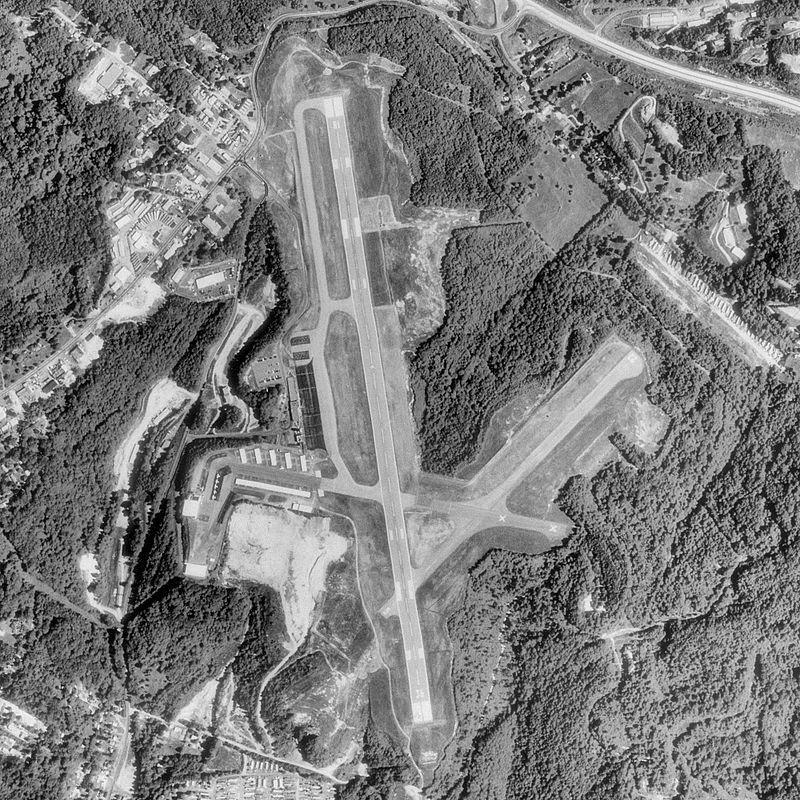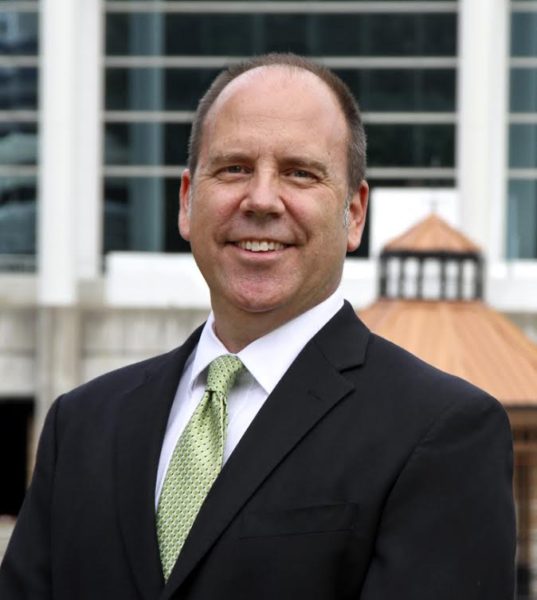
On February 6th, Morgantown’s new City Manager, Paul Brake, officially took the reigns of city government. Zackquill reached out for an interview back in February, but his calendar was already so full with job obligations, we didn’t get to see him until mid-March! Our conversation covered dozens of issues, from downtown development and the Comcast/WBOY dispute to growing an aerotropolis and the best local restaurants. This interview was edited for clarity and content.
Zackquill: Has it been a smooth transition for you as you’ve come down this way from Michigan?
City Manager Brake: I think so. I came down during a busy season. We’re finishing up the preparation for the fiscal year 2018 budget. Ordinarily that’s pretty deep, thick, in-depth, and it covers an expansive amount of information. That’s made it busier than usual. I’ve been in the business for some time, so I’m not learning governmental budgeting, but in the context of a different revenue system, different state laws, things like that, there’s been a bit of a learning curve. But I would say, by and large, because of the assistance I’ve received from the staff here, they’ve made it extremely helpful for me to adjust and come up to speed as quickly as possible.
Z: What have been some of those differences? Is there a difference between how Morgantown or West Virginia does city governance as opposed to what you were doing in Michigan?
PB: In terms of maximizing limited resources, it’s all very similar in that regard. Having competing demands for resources, it’s all very similar, no matter what part of the country you’re in. There are subtle nuances, where the taxation systems are different. In West Virginia, taxes are based more on the value of services through business and occupation tax (which does not exist in that many other states) and a heavier dependence on consumption. In Michigan, they’re based on ad valorem, the value of property. Those are subtle differences. But the basic services, such as public safety, development of property, development services, safe buildings, the essential programs are very similar.
A few years ago, I worked for Meridian Township in Michigan, which is just adjacent to Michigan State University. Michigan State is a little bit larger than WVU, but still a complex organization with lots of off-campus housing, and many administrators and faculty lived in the community where I worked. Some of those town/gown elements overlap, so there’s some applicability coming here. One big difference is that WVU has the hospital system, which is a huge economic driver that adds to the stability of the region. It’s not entirely recession proof, but people will always need healthcare, so how can we develop that section of our community?
Z: A lot of folks have said that’s one thing that makes Morgantown unique. For better or worse, other communities in the state tied their train to coal. Here, you’ve got higher ed, hospitals, and natural gas, which have created the sense that Morgantown is recession proof. Not that we’re going to track you down, but what neighborhood did you move to when you came to town?
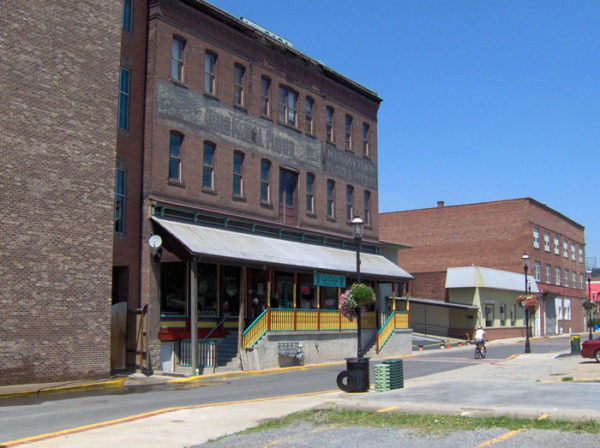
PB: [Laughs] Temporarily, I moved to the Warf district, in the downtown area. That was advantageous for me for a number of reasons- I’ve got temporary lease, so I hope to find somewhere a little more permanent eventually. Not only do I have a short commute to work, but there’s a whole lot of issues and items that deal with the core part of the city. It’s been really helpful to see everything after hours.
Z: You’re right in the thick of it then?
PB: Yes, I’m at ground zero.
Z: Did you bring any family with you?
PB: My wife hopes to join me, eventually. She’s back in Michigan taking care of elderly family. That’s part of the challenge. Quite honestly, with the number of hours I’m putting in, it’s OK that I’ve relocated by myself. We do not have children, but we’re still in the middle of a transition plan.
Z: We were going to ask about kids. So now you don’t have to pick sides between Morgantown and University High Schools! Have you found any new favorite restaurants or watering holes since you’ve gotten to town?
PB: I really like Black Bear, both locations. I like Table 9. I could come up with a long list. My goal since I arrived is to try one new local restaurant once a week, or discover a new place every week. That’ll keep me busy for at least a year. That’s one of the appeals coming here- there are so many of these local restaurants and eateries and pubs, it adds to the uniqueness. You can drive anywhere to get a chain. These places are unique to Morgantown, and it’s been great to move here and discover these great restaurants. It adds to our quality of life.
Z: Being from the state of Michigan, are you a Michigan State or a Michigan fan?
PB: Growing up in the Lansing area, I’m a Spartan fan by convenience. When we’re doing well, I’ll watch, but when the Spartans start faltering, we’ll start to say “when’s basketball season?” Michigan is a very partisan state along those lines. You’re either a Spartan or a Wolverine. Here, though, it’s really cool that the entire state embraces the Mountaineers.
Z: So why Morgantown then? We mentioned the food and the economy, but was there anything else that stuck out?
PB: I’ve told this story a number of times, but I’ll share it again. Back in the early 2000’s, my retired parents were traveling by car to Florida. When they were driving through West Virginia, my father started having heart attack symptoms. He was transported to a local hospital, then transported to the University hospital. He called me and asked that I come down to pick him and my mother up. I went down with my older sister, and to be honest, I’d never been here before. I’d heard of the university, WVU has alumni up in Michigan. So I was in town for about four or five days. This was in a time before smartphones, so to pass the time, I was able to walk around town, see the football stadium… not only did it make a good impression on me that the hospital took good care of my parents, but I got to know the community. So professionally, I lucked out, getting the opportunity to work in a big college/university town like this. I was interviewing other places, but I’m really happy to be here.
Z: We’re certainly happy to have you! Since you’ve been here, all of five weeks, what challenges are you excited to tackle? Is there anything you’ve seen that makes you say “we can make some real headway in this direction.”
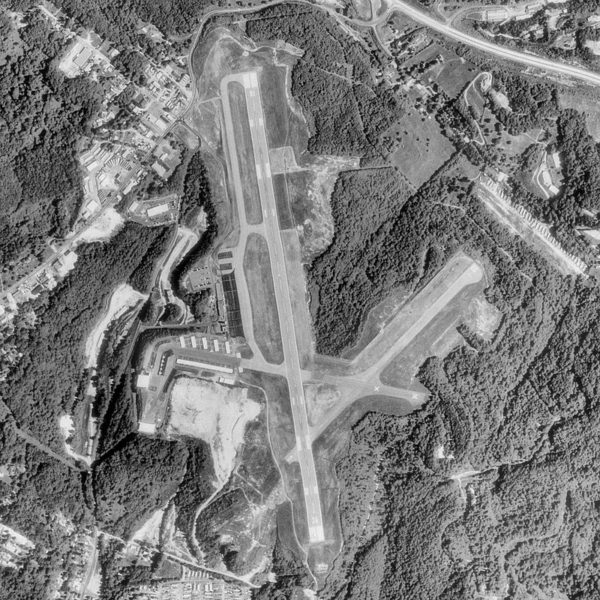
PB: In the recruitment process we identified a few things. One is the expansion of the airport, the extension of the runway, building hangars for the National Guard and Air Force Reserve. That’s been a complex project that includes many partners and many pieces coming together carefully. Seeing the opportunities there, hopefully bringing in other airport related businesses, developing a business commerce area, that will be a multi year project. Also, building a solid partnership with Main Street businesses and investing in our downtown community. Bridging the appeal of downtown to make it a live/work environment, making downtown more than just a destination of college students. We want to look at downtown design elements, make sure the lighting is good, build partnerships with local businesses and business owners, addressing those concerns- that’s a goal of mine. The Warf and Waterfont are woefully underutilized. We can truly make that a destination and get past the elements that keep people from enjoying that area.
Z: You worked with SAFEbuild before you came to Morgantown, taking a detour from the public world into the private world. What are some of the things you learned or experienced in the private sector that you’re bringing back with you into public leadership?
PB: SAFEbuild was a private business that was providing services for local governments. In the private sector, the way that they do revenues and expenses, it’s an entirely different perspective. I’m not advocating we make City Government into a profit making machine, of course, but nevertheless, it’s not bad to look at our costs and ask if they align with the money that we’re bringing in. When I was with SAFEbuild, they had maybe 600 employees spread across ten states, and they all had to stay in constant communication. We’re on a much smaller scale here, but it’s vitally important to have good communication across organizational lines and partnerships here too. There were a lot of great takeaways, but I’m glad I’m back in the public sector, that’s truly the world I know. You used the word “detour”, and that’s a good description of my time there.
Z: There is a sense where, as a public servant, you want to take good stewardship of public funds. In the private sector, they’re being good stewards of shareholder’s funds. Here, it’s as if the taxpayers are the shareholders, and you’re responsible for using their funds as efficiently as possible, raising what we need to spend what we need.
PB: I would agree with that.
Z: You’ve been working in the field for years. Are there any particular projects from the past that you look back to and say “I’m really proud of this accomplishment.”
PB: In my last experience in Grand Blanc, I was part of a public-private project called the Brownfield redevelopment project. It was a property that had pretty significant environmental contamination, right in the heart of the community. For the developer, they had to take a leap of faith, so through minimizing risk as much as we could, we ended up bringing about major development in the downtown area. It was a long and complex process, it took three-and-a-half years to complete, but now it’s a retail shopping center and a vibrant part of the community.
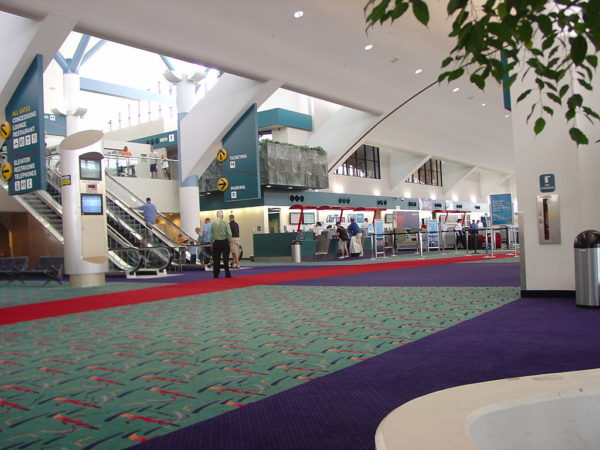
Another success was developing an inner-local agreement for the I-69 International Trade Corridor. In Michigan, an inner-local agreement was used to form an economic development entity that had tools to use that individual entities couldn’t have on their own. The I-69 Corridor spanned from just outside Lansing, Michigan to the Canadian Border. It involved developing manufacturing that involved multiple forms of transportation- moving products through rail, truck, water, or air. By marketing and encouraging investment, and by working to develop the airport outside of Flint, Michigan, we were able to bring in international trade. The concept is called Aerotropolis, having a city in an airport, that an airport becomes its own economic driver for both passenger travel and freight. That’s what interests me.
Z: Is it fair to say that this Aerotropolis idea benefits the entire community, even if we local residents may not see all the business happening there? That an airport has it’s own economy that benefits the community, even if the community isn’t utilizing the airport often?
PB: Absolutely. It hasn’t been specifically mentioned yet, but I would like to look into establishing a foreign trade zone at our airport. If goods are brought into the country internationally, those goods have to be processed through customs. Around here, that might be Pittsburgh or D.C. Those goods could be coming straight to Morgantown, and those goods could be processed here.
Z: Is there anything you’d like to share with local citizens in town? Any message you’d like to pass along to them?
PB: My management style is very approachable. We were talking about how booked my calendar is, we didn’t even talk about nighttime commitments, like receptions and neighborhood association meetings. I’m a pretty even keel sort of person. If there are issues or any particular problems, I like to look at those things from an in depth perspective and hopefully come up with a win-win solution. That may may not always be the case, but I want to give the promise of giving my very best effort in coming up with a thoughtful solution.
One of the issues that caught us all off guard was the Comcast/WBOY decision. Right now, we’re looking at partnering with Monongalia County and Preston County to petition to the FCC to receive an “orphaned community” designation. That may not have the outcome people are hoping for, but the point that I’m trying to make is that these issues that have greater public purpose, that’s where I’ll spend my time and take a really deep dive. I’ll try to leverage the best from all parties and create the best outcome.
Z: Thank you so much for your time today. If the City has any particular good news to share, be sure to let us know here at Zackquill!
PB: Of course, my pleasure.

